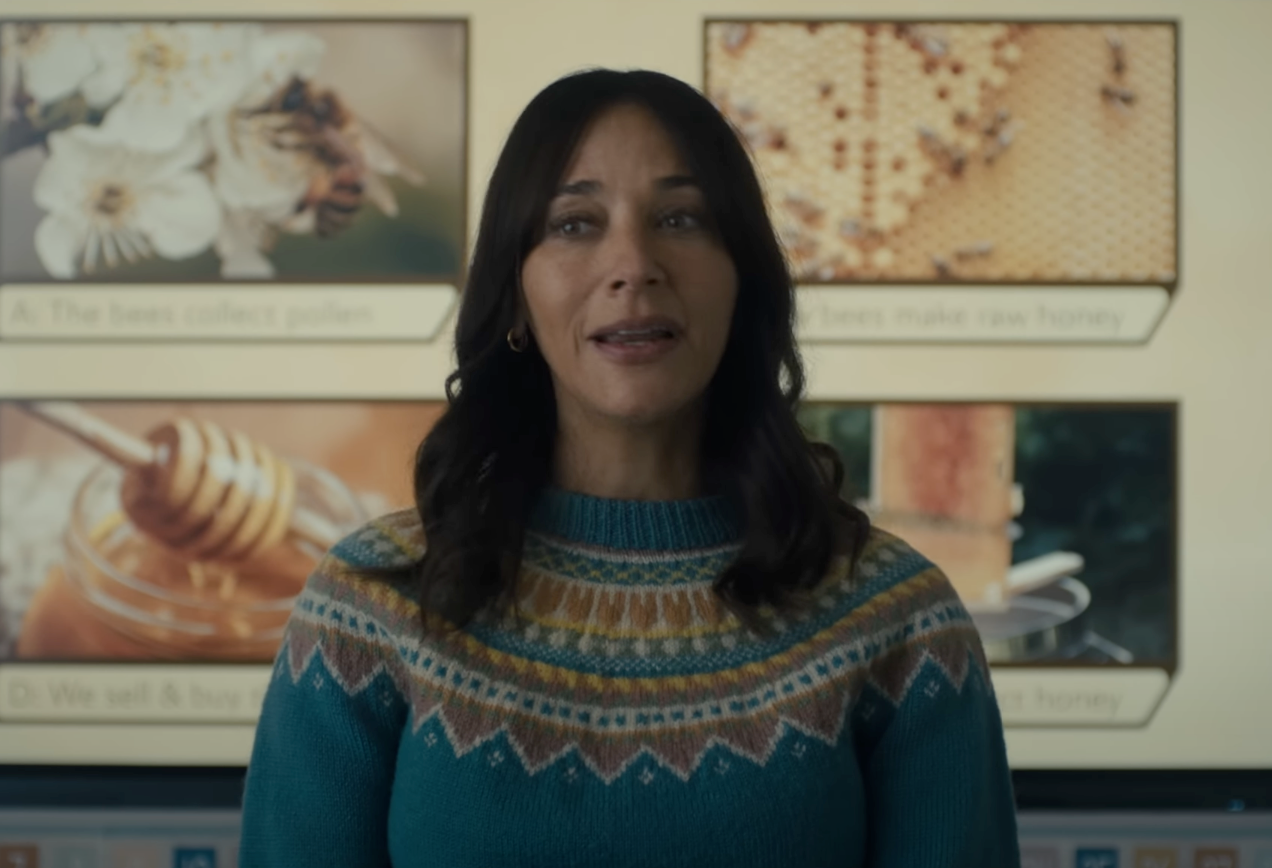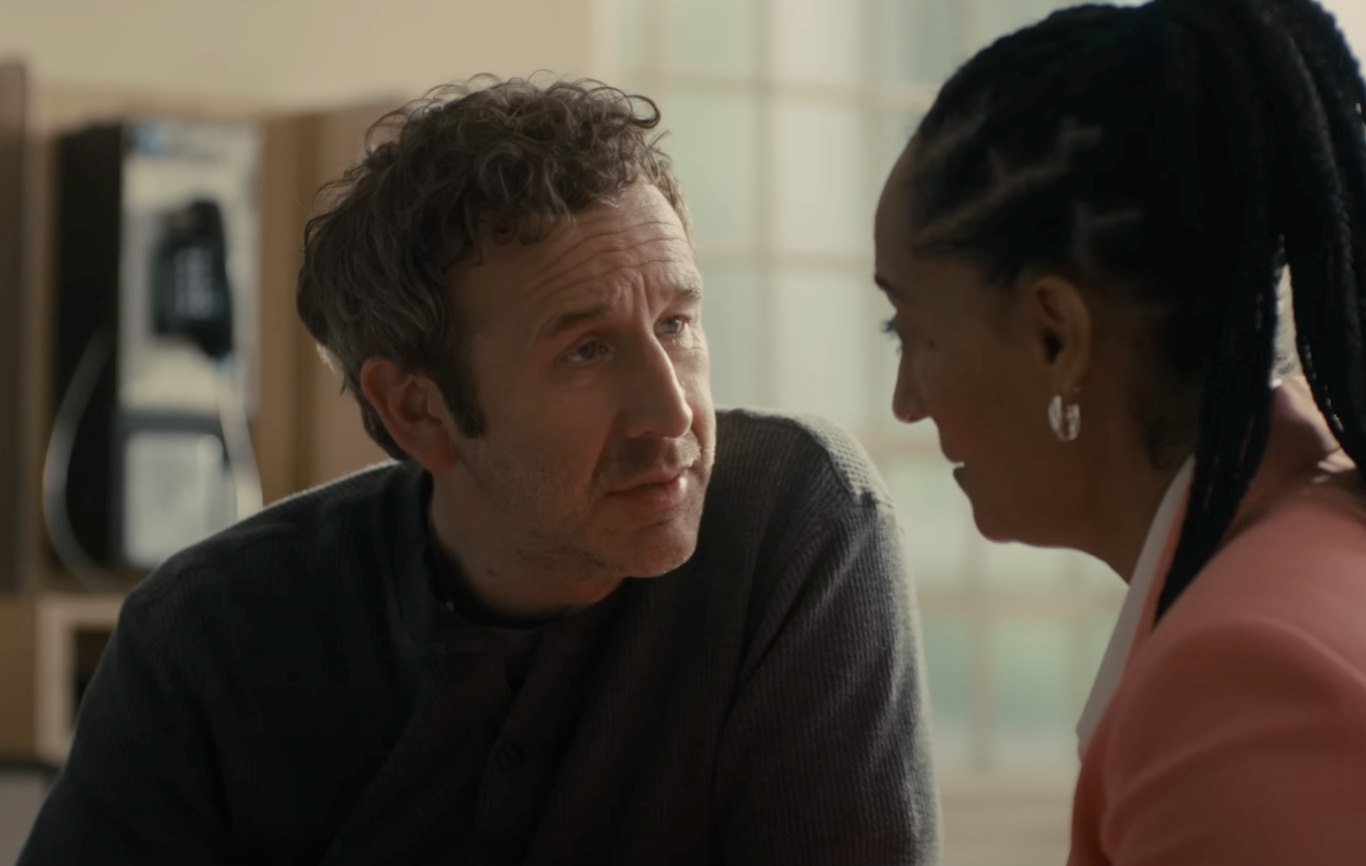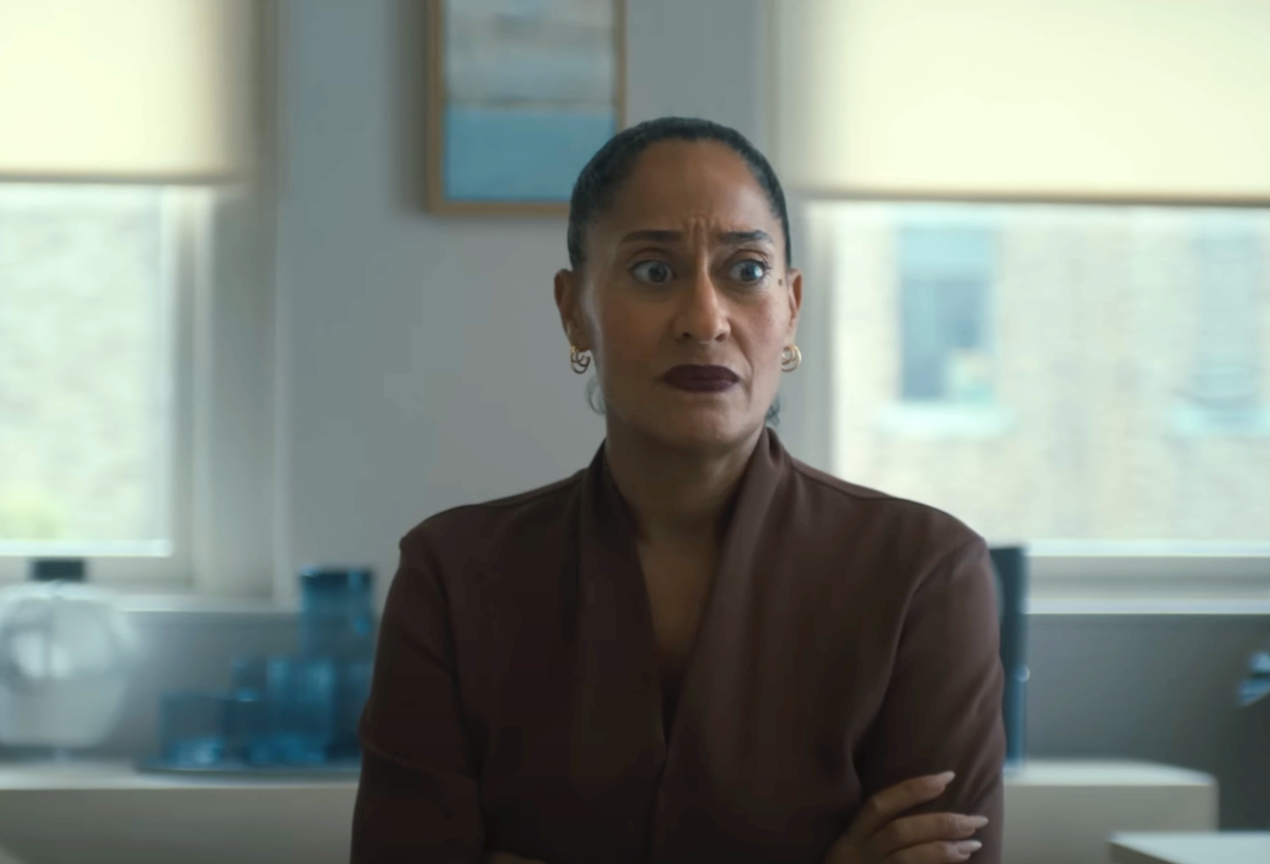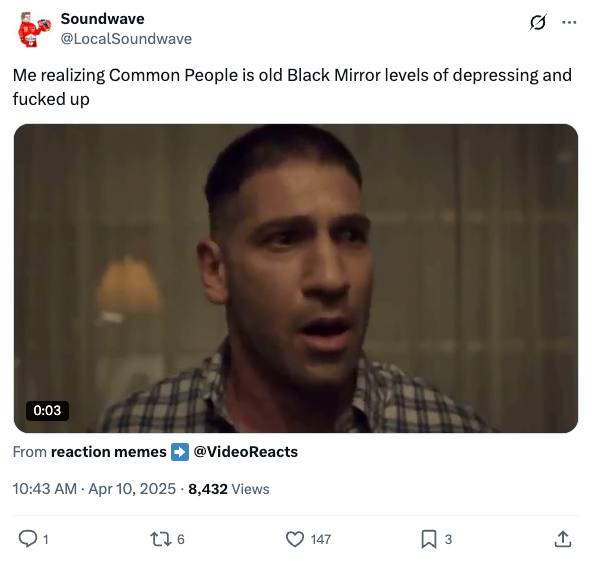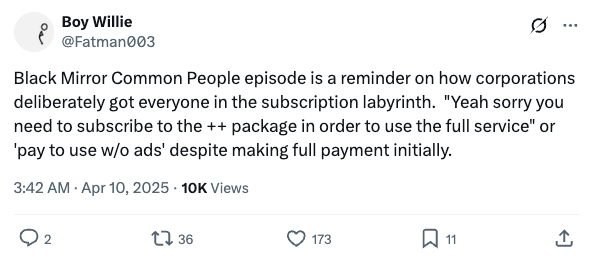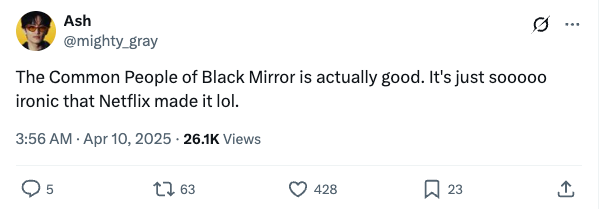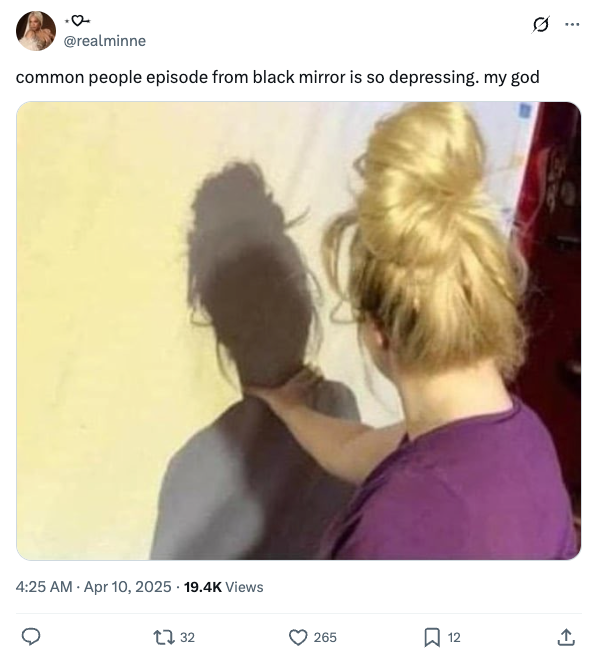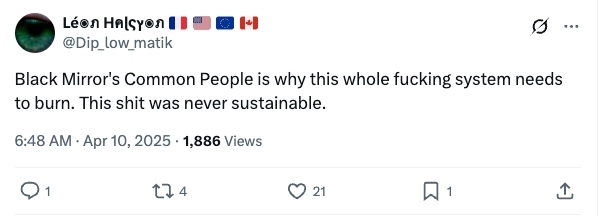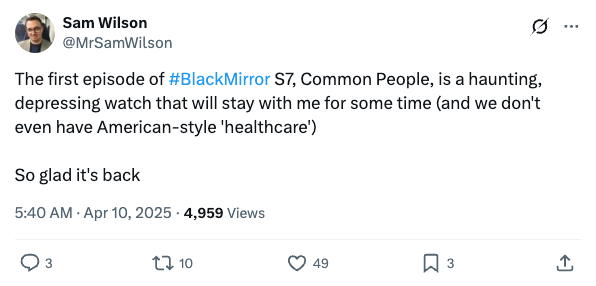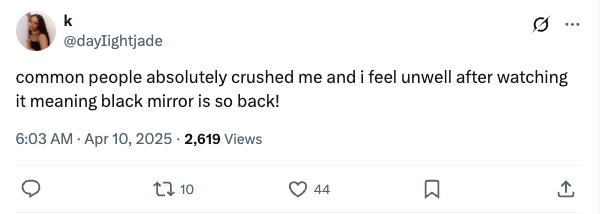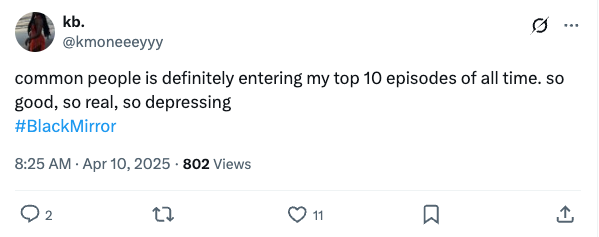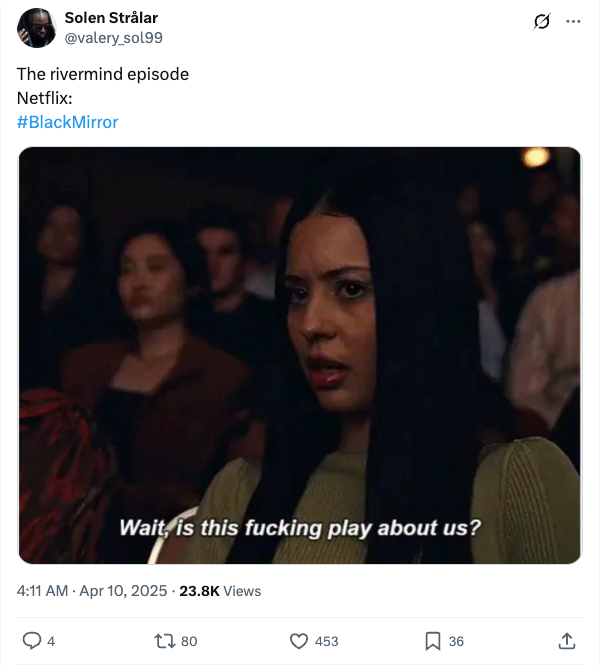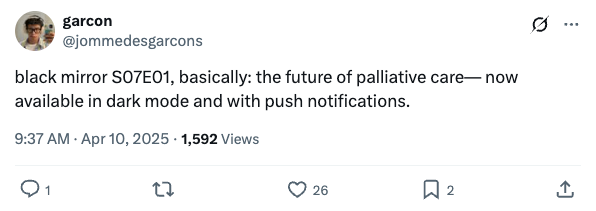" It ’s a bit too realistic for me . "
To me, thescariest moviesand TV shows aren’t slasher films or murder documentaries. What’s even more terrifying than that are vivid dystopian realities — ones juuuust plausible enough to make you wonder if our future is indeed heading in that direction.
Black Mirroris the QUEEN of bringing our most terrifying societal fears to life. And on Apr. 10, the SEVENTH (yes, SEVENTH) season came out — so many of us spent the day just watching all six episodes.
Of the six new episodes, one seemed to take the internet by storm — not just because of its exceptionally frightening concept, but also because it hits verrrry close to home. The episode is called “Common People,” and it’s the first episode in the season (but don’t worry, I won’t spoil it for you).
The episode is about Amanda (Rashida Jones) and Mike (Chris O’Dowd), a middle-class couple. When Amanda has a severe health issue, a spokesperson from a tech company (Tracee Ellis Ross) informs Mike of amonthly subscription-style technologythat’ll keep his wife alive.
The conceptseems to combinetwo hugely debated, highly topical, and arguably corrupt parts of society: the healthcare system (specifically in America), and digital subscription services.
The episode highlights how these two systems can feel money-grabby, and almost like traps once you’ve committed for awhile. So, as you might expect, this left people furiously nodding in agreement…and panicking over how powerless we feel.
So in case you’re also questioning the ethics of society — and because it’s more comforting to freak out together than alone — here’s what the internet is saying about the episode:
usual people black mirror sequence was so pitiful and fucked up but that ’s love you know black mirror is actually good againpic.twitter.com/bD20hRgkTb
inglorious mirror ’s vernacular people . oh , they start with a banger ! this will stay with me.pic.twitter.com/pch4t3wt13
Charlie Brooker writing the Common People installment of Black Mirror knowing very well it lampoon Netflix ’s own bull tiered subscription model.pic.twitter.com/pnsipe6q2A

“ Common People ” sequence of Black mirror is a footling too realistic for mepic.twitter.com/CFH8vFbhav
Common People ended up being one of the distressing and expert episodes of the series#BlackMirrorpic.twitter.com / waNxDIcyzW
And for more, be sure to follow BuzzFeed Canada onTikTokandInstagram!

